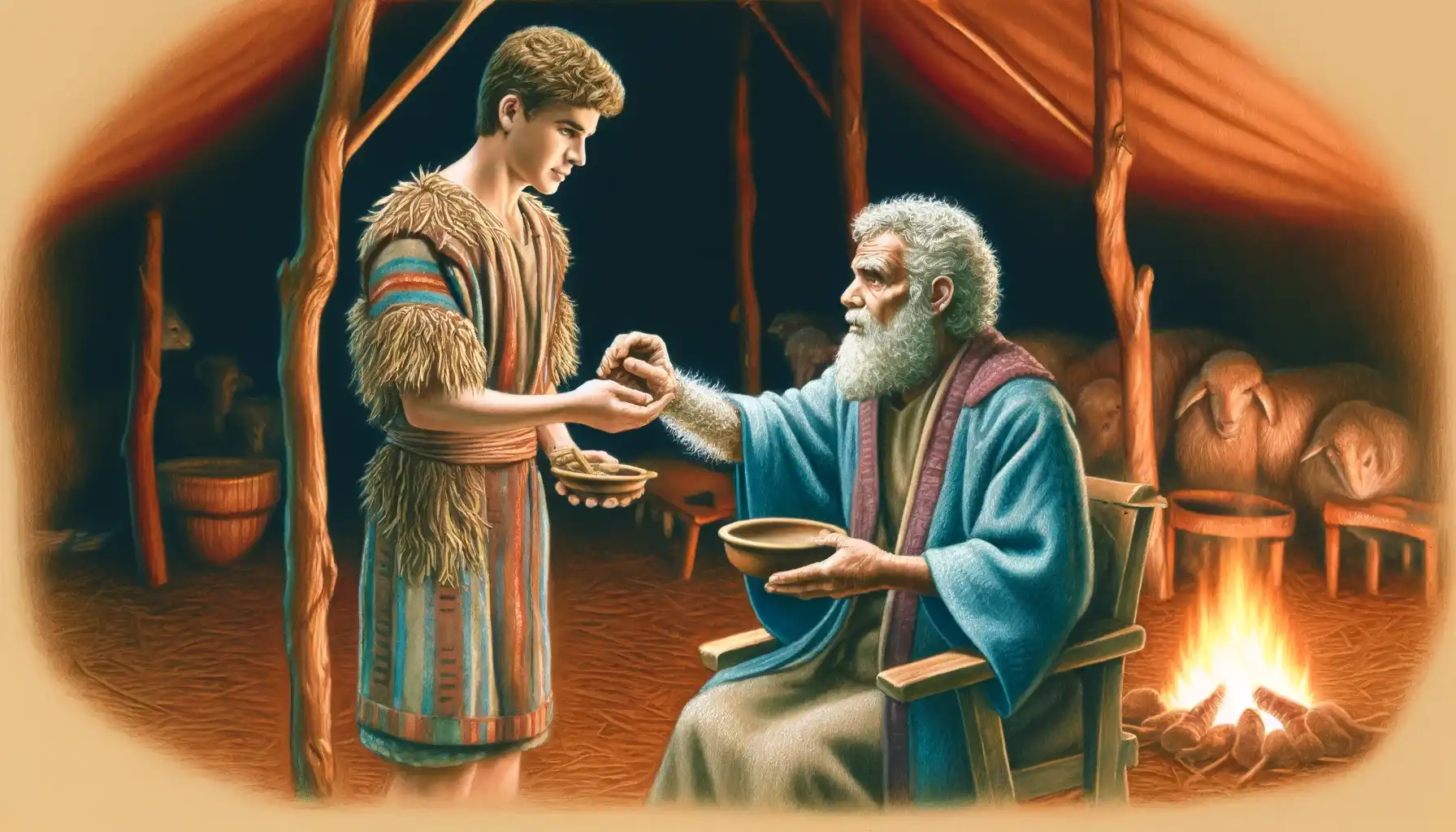
How did Jacob deceive Isaac?
Who was Jacob?
Jacob is a central figure in the biblical narrative, known for obtaining his father Isaac’s blessing through deception, which shaped much of his life’s path and had profound implications on the history of the Israelites.
- Jacob was the son of Isaac and Rebekah, and the twin brother of Esau.
- He deceived his father Isaac to receive the blessing that was traditionally meant for the firstborn, Esau.
- Jacob used goatskins on his arms and neck to mimic Esau’s hairy skin, deceiving Isaac who was blind.
- This act of deception led to significant family conflict and Jacob’s eventual flight from Esau’s wrath.
Who was Isaac?
Isaac is a significant figure in the Bible, notable for his role in the Abrahamic covenant and as a link in the lineage leading to the nation of Israel. His life illustrates themes of faith and obedience in biblical tradition.
- Isaac was the son of Abraham and Sarah, and the father of twins Esau and Jacob.
- He is one of the patriarchs of the Israelites and plays a central role in the covenant God made with Abraham.
- Isaac’s life features a famous biblical event where Abraham was asked by God to sacrifice him, known as the Binding of Isaac.
- He married Rebekah, and his story is pivotal in the continuation of the Abrahamic lineage.
The story of Jacob deceiving Isaac, found in Genesis 27, is one of the most intriguing narratives in the Bible, rich with themes of deceit, family dynamics, and divine providence. Here is a detailed analysis of the event and its theological implications:
Context and Background
Isaac, who had grown old and was blind, decided to bestow his blessing on his eldest son, Esau. In ancient times, the father’s blessing was a formal declaration that conferred the rights and responsibilities of the firstborn, including leadership of the family and a double portion of the inheritance. Esau, being the firstborn, was the expected recipient of this blessing.
The Deception
Rebekah, who overheard Isaac’s plan to bless Esau, favored Jacob and devised a plan to secure the blessing for him instead. This plan involved several steps:
- Disguise: Jacob was to wear Esau’s clothes and cover his arms and the smooth part of his neck with goatskins to mimic Esau’s hairy skin.
- Deception: Jacob was to prepare a meal for Isaac, as Esau would have, and present it to Isaac in order to receive the blessing.
Jacob’s deception involved both impersonation and lying. When Isaac questioned him, Jacob explicitly stated that he was Esau. This deceit is further emphasized by Isaac’s skepticism due to the voice he heard, prompting him to ask Jacob to come closer to touch his skin.
Isaac’s Blessing
Despite his reservations, Isaac was convinced by the physical evidence and proceeded to bless Jacob, believing him to be Esau. This blessing was irrevocable, as per the customs of the time, which meant that once spoken, it could not be taken back or altered.
Outcomes and Consequences
- Immediate Outcome: Esau, upon discovering the deceit, was devastated and furious. He vowed to kill Jacob, prompting Jacob to flee to Haran for many years.
- Long-Term Implications: The consequences of this deception reverberate throughout the Genesis narrative, affecting the future relationships and events involving Jacob and his family. The themes of deceit and trickery follow Jacob, culminating in his own experiences of being deceived by Laban.
Theological Insights
- Divine Providence: The story raises questions about the role of human action in divine plans. Rebekah and Jacob’s actions can be seen as fulfilling earlier prophetic words given to Rebekah that the older (Esau) would serve the younger (Jacob).
- Ethics and Morality: The narrative presents a complex picture of morality. While Jacob’s actions are clearly deceitful, they also lead to the fulfillment of God’s promises. This juxtaposition invites reflection on the purposes of God and the flawed nature of His chosen instruments.
- Family Dynamics: The story highlights the intense and often problematic family dynamics, including favoritism and rivalry, which have profound personal and communal effects.
Conclusion
Jacob deceiving Isaac is a multifaceted story that serves as a foundational moment in the biblical narrative. It explores the complexities of faith, the consequences of deceit, and the inscrutable ways of divine providence, offering profound insights into the human condition and the mysterious workings of God’s will.



